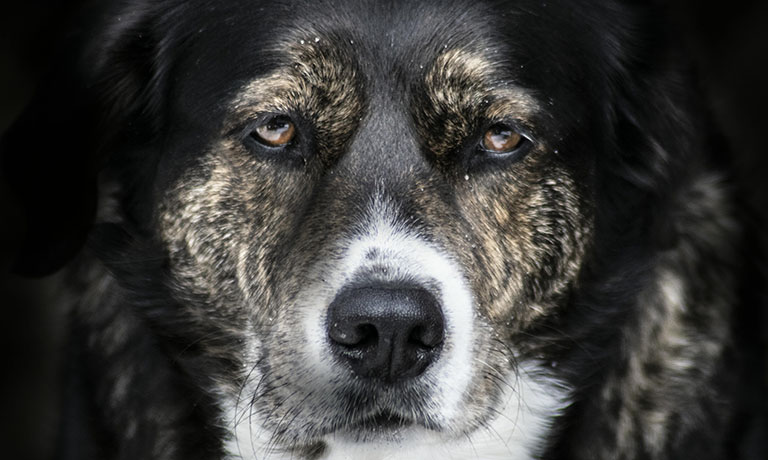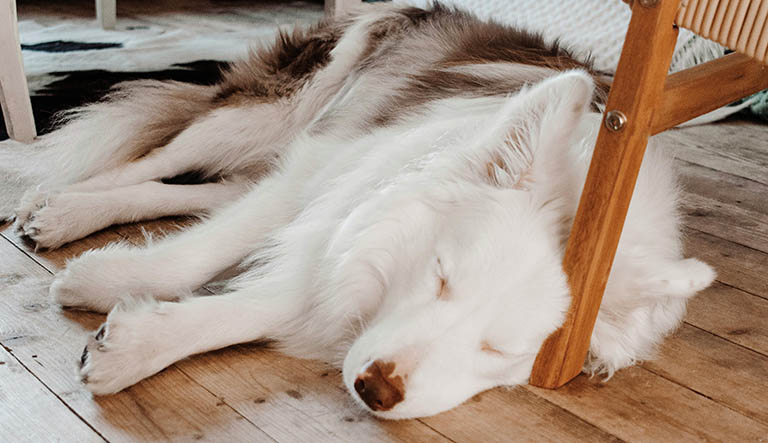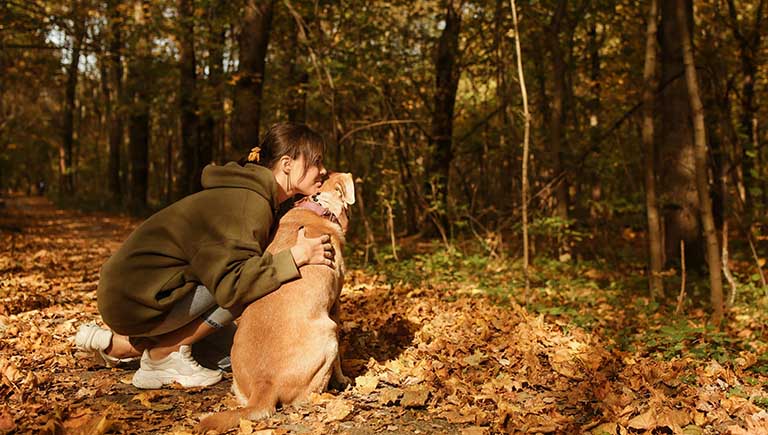Just like humans, dogs experience grief when they face the loss of a companion, be it a family member, another pet or a primary caregiver. These emotional bonds are deep, and when they are broken, grieving dogs can exhibit behaviors that clearly indicate their sadness and confusion. Recognizing the signs of grief in dogs and understanding how to help them through these challenging times is essential for pet owners. In this blog discover if dogs experience grief, grief in dogs symptoms and how to help your dog through their grief.
Do Dogs Experience Grief?
Yes, dogs do experience grief. Just like humans, dogs form deep emotional bonds with their family members—whether it’s another pet or a human—and the loss of a companion can lead to feelings of sadness and confusion. Dogs may display signs of grief through changes in behavior. While every dog’s response to loss is different, the emotional impact is real, and understanding this allows pet owners to provide the necessary support during these tough times.

Signs of Grief in Dogs
Dogs can display a range of mourning behaviors, including withdrawing from others, losing interest in activities they once enjoyed and showing a lack of appetite. They may become lethargic or sleep more than usual, while some dogs may show unusually aggressive or destructive behavior. In some cases, grieving dogs may exhibit inappropriate elimination in the home or search for their lost companion by pacing or vocalizing in ways they hadn’t before. They might also become very clingy, following their owner around for comfort.

Instances That Can Cause Grief in Dogs
Kids Leave for College or Move Out: The departure of children for college or moving out can significantly impact a dog’s emotional well-being. Dogs often bond closely with family members, and the sudden absence of a familiar face can lead to feelings of confusion and loneliness.

Dogs and Divorce: Divorce can be a tumultuous time for everyone involved, including pets. Dogs can sense the emotional turmoil and changes in their environment, which can lead to feelings of anxiety and grief.
Dog Grieving for Another Dog: The loss of a companion animal can deeply affect a dog, as they often form strong bonds with their fellow pets. Dogs may exhibit signs of mourning, such as searching for their lost friend or showing a lack of interest in activities they once enjoyed.
Dog Grieving Loss of Owner: The death of a beloved owner or when they go into assisted living is one of the most challenging experiences a dog can face. Owners are often viewed as the primary caregivers and closest companions. When an owner passes away, a dog’s world can turn upside down. They may have to adjust to a new home or environment, leading to a profound loss of security and disruption of their established routines.
Helping a Dog Through Grief
Maintaining Routines
Maintaining routines is essential for providing comfort and stability to a grieving dog. Consistent schedules for eating, walking and playtime offer security during emotionally challenging times, helping dogs cope with the changes caused by loss. This predictable structure can reduce stress and create a reliable foundation for navigating grief.
Offering Emotional Support
Offering emotional support is essential when helping a grieving dog. Providing extra attention, whether through cuddling, play or exercise, can make your dog feel more secure and loved during difficult times. Engaging your dog in positive, uplifting activities—like interactive games, walks or even exploring new environments—can help shift their focus and lift their spirits. By being attentive to their emotional needs and providing the right balance of support and space, you can help your dog navigate this challenging time.

Does Getting a New Dog Help with Grief?
Introducing a new pet too soon after a loss can overwhelm or confuse a grieving dog. While it may seem like a good idea to bring in a new companion, doing so before your dog has had time to process the loss can add unnecessary stress. Dogs need time to adjust to the absence of their previous companion and come to terms with the changes in their environment. Rushing this process by adding another pet may cause anxiety or delay their emotional healing. It’s important to wait until your dog has fully adjusted before considering a new pet. When the time feels right, take into account your dog’s personality and needs, ensuring the new companion will be a good fit for their emotional well-being.
Seeking Professional Help if Needed
If your dog’s grief seems prolonged or their behavior changes significantly, it may be time to seek professional help. Persistent signs of depression, such as refusing to eat, ongoing lethargy or other health concerns, can signal the need for a veterinarian or animal behaviorist’s advice. These professionals can evaluate your dog’s emotional and physical well-being and suggest appropriate interventions. Calming therapies like pheromone diffusers, anxiety wraps or behavior therapy can be incredibly helpful in alleviating stress and easing your dog through their grief. Addressing these issues early ensures your dog receives the care and support needed to heal.
Allowing Time for Healing for Grieving Dog
Having patience is crucial when helping a grieving dog. It’s important to be mindful not to push them too hard during this time, as every dog heals at their own pace. While offering comfort and engaging them in positive activities can help, forcing them to move on too quickly may add to their stress. Allow your dog the space to process their emotions naturally, showing patience and understanding as they adjust. By giving them the time they need to heal, you provide a supportive environment where they can gradually recover from their loss.
Being There for Your Grieving Dog
Grief is a natural response to loss, and dogs, much like humans, need time and support to navigate it. Whether it’s the loss of a pet, family member or owner, the emotional toll on dogs can be significant. By maintaining their daily routines, offering emotional support and allowing them the time to heal, you can help your dog through their grief. While every dog heals at their own pace, patience and understanding are important in ensuring their emotional well-being during this difficult time. And if their grief seems prolonged or unmanageable, professional help is always available to provide the care they need.


